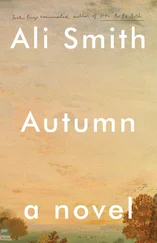In the opening lines of José Saramago’s novel The Stone Raft, ‘when Joana Carda scratched the ground with the elm branch’ all the dogs for miles around began to bark, in line ‘with the fable that in mythological times of ancient Greece, here, in the district of Cerbère in the Eastern Pyrenees,’ the three-headed mythical dog after whom the place has been named would start a similar barking, with all three of his heads presumably, whenever his master, Charon, ferryman of the dead across the River Styx, summoned him. The line Joana Carda draws, we find out later, gesturally signifies the end of a relationship between herself and a lover. But what happens when she draws this line (and simultaneously when another couple of characters do another couple of random things, one skims a stone, one simply stands up from sitting in a chair) is that a crack appears in the fabric of Europe, and as this crack grows, Europe literally starts to break up. ‘Who can tell what tomorrow may bring, the Pyrenees appeared to be solid for all eternity, and look what happened.’ Administrators from Spain and France rush to fill the crack with concrete and as soon as they start to celebrate their mending job the concrete disappears down an even wider hole and the crack gets bigger, becomes an edge, the Iberian Peninsula pulls against the thick ropes that the powers-that-be have strung across the abyss, the ropes break
like ordinary string, some that were stronger uprooted the trees and posts to which they were tied. Then there was a pause, a great gust of air could be felt rushing through the air, like the first deep breathing of someone awakening, and the mass of stone and earth, covered with cities, villages, rivers, woodlands, factories, wild scrub, cultivated fields, with all their inhabitants and livestock, began to move, a ship drawing away from harbor and heading out to an unknown sea once more
— something beyond us and alive to change asserts itself and a piece of what used to be mainland Europe simply floats off by itself, and it must matter that Saramago’s first reference, first connecting bridge, first linking motif on his first page of this novel of breakage, is to magic, to myth, and to the divide between the living world and the world of the dead.
Is it a coincidence that Michael Powell’s first major feature, Edge of the World (1937), about the very edge of the British Isles, what the Romans called Ultima Thule, happens to have the ladies of the Glasgow Orpheus Choir singing over its opening credits? Here’s another Glasgow Orphean moment, from Edwin Morgan. Orpheus is full of joy; his dead love, Eurydice, is behind him, being led back to the surface of the world from the underworld by the messenger god Hermes (or Mercury), coming back to the surface of life because Orpheus’s music has moved Hades and Persephone into letting her go — on the condition that, on their way between the worlds, Orpheus does not once look behind to see her:
five hundred million hummingbirds sat in the Kelvin Hall / three
hundred thousand girls took double basses
in a crocodile to Inverkip / six thousand children drew Rothesay
through twelve thousand kites / two hundred
plumbers with morning cellos galvanized the bedmakers of Fairlie
/ forty babies
threw their teething-rings at a helicopter / trickety-track / till
Orpheus looked back
and there was nothing but the lonely hills and sky unless the
chilling
wind was something / and the space
of pure white pain where his wife had held his hand from hell / he
left the place
and came to a broken shack at midday / with carts and horses /
strong
dark ragged boys
played in the smoke / the gypsies gave him soup and bread / for
the
divine brooch / who cares
what is divine, he said /
and that’s Orpheus displaced after this particular crossing of the wrong line, out on the edge of things with the gypsies, who never belong. Daring the divine line is always chancy, like it is in Rilke’s Orpheus. Eurydice. Hermes., a poem whose title is already full of division and finality via the full stop which Rilke places after each name. Rilke suggests there’s simply no point in trying to bring Eurydice back to the surface (here in Stephen Mitchell’s translation):
She had come into a new virginity
and was untouchable; her sex had closed
like a young flower at nightfall, and her hands
had grown so unused to marriage that the god’s
infinitely gentle touch of guidance
hurt her, like an undesired kiss.
She was no longer that woman with blue eyes
who once had echoed through the poet’s
songs,
no longer the wide couch’s scent and island,
and that man’s property no longer.
She was already loosened like long hair,
poured out like fallen rain,
shared like a limitless supply.
She was already root.
Eurydice is over the edge; she has changed worlds. Sylvia Plath, in her poem Edge, one clearly heavily influenced by Rilke’s Eurydice, is interested not just in ends and endings but in a continuing aesthetic tradition of finishings and of tragic completion.
The woman is perfected.
Her dead
Body wears the smile of accomplishment,
The illusion of a Greek necessity
Flows in the scrolls of her toga,
Her bare
Feet seem to be saying:
We have come so far, it is over.
Each dead child coiled, a white serpent,
One at each little
Pitcher of milk, now empty.
She has folded
Them back into her body as petals
Of a rose close when the garden
Stiffens and odors bleed
From the sweet, deep throats of the night flower.
The moon has nothing to be sad about,
Staring from her hood of bone.
She is used to this sort of thing.
Her blacks crackle and drag.
The starkness of the line after the word ‘perfected’—two words, ‘Her dead’ (followed four lines later by the matchingly stripped-back ‘Her bare’) — has brutal simplicity, and when this is met by the rich complexity of satisfaction in its next line, the smile, then the accomplishment, a sense of control that’s close to obscene, is suggested. But the poem, a refutal of fertility, is at the same time a gesture of Cleopatran panache; a refutal of the moons and roses of all poetry is at the same time a reclaiming of them, a remaking of them into indifference there on the edge between life and death, where the only continuity, suggested in the repeating assonance of the last line, is a diffident mourning.
There’s no arguing with this Edge. It’s practically set in stone. But in Alasdair Gray’s novel 1982, Janine, a lonely man attempting suicide in a bed-and-breakfast room is physically ejected from his own death-attempt by an unexpected voice, one that has the edge on him. As the pills and the alcohol take their worst effect, the page breaks into columns then diamond-shaped text in a mix of typeface bolds and italics. Several voices speak at once. In the left-hand margin, the voice that speaks from the edge of the page argues back in a small squeezed typeface:
listen I came because you called and now your hot and cold floods of speech hardly allow me a word in edgeways…listen I am not what you were told not an owner true makers never own what they make I have no authority that tool of high rabbles who live well by serving the real makers badly I am not mysterious am no king judge director inspector supervisor landlord general manager or any kind of master no expert computer planner lawyer accountant clergyman policeman teacher doctor father who is cruel to be kind I do not rule thunder threaten you will not leave you…listen I am light air daily bread common human warmth ordinary ground that drinks every stain takes back all who fall renews all who have not poisoned their seed my one power is letting nothing rest which is not well balanced my only intelligence is what you lend when you forget yourself
Читать дальше












